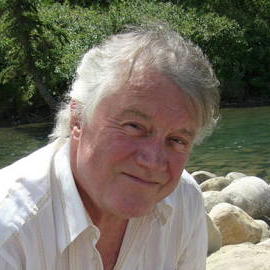 CENTRAL ENGLAND: Mike Wheeler's concert reviews from Nottingham and Derbyshire feature high profile artists on the UK circuit - often quite early on their tours.
CENTRAL ENGLAND: Mike Wheeler's concert reviews from Nottingham and Derbyshire feature high profile artists on the UK circuit - often quite early on their tours.
A CRACK IN TIME?

A rare Leap Day editorial from KEITH BRAMICH
Today, 29 February, is a once-in-four-years discontinuity, crack or stitch in time - that rare day when the august way in which we count our time here on earth needs correcting, and also Gioacchino Rossini's birthday. It can be viewed as a free, bonus, extra day where anything goes and we're not wasting time by doing something different, or maybe as something far more metaphysical.

29 February is also the day on which, traditionally, members of the fairer sex can propose to those of the hairier variety, coming handily just over two weeks after that other useful day celebrating one or possibly up to three saints, all called 'Valentine'.

Happy Leap Day, then! In the tradition of the world's least frequently published newspaper, La Bougie du Sapeur, published in Paris every 29 February, with an even rarer Sunday edition, I've decided to exercise my rights as captain here at Classical Music Four-Yearly and write an editorial, so must try hard to not let this seem like a madman's crazy ramblings!
So: what does a leap day mean, musically, apart from its connection with the birthdays of Rossini and Gareth Farr and the anniversary of the day that Alessandro Striggio died, and would this leap be forwards or backwards?
My own personal 'leap day' took place when my friend Natalie Artemas-Polak introduced me to the great Canadian pianist Marc-André Hamelin, who pretended to punch me in the stomach when I said something naughty about Charles-Valentin Alkan.
The most obvious 'leap' in music, generally, would, I suppose, be a sudden, unsubtle key change, or maybe the discontinuity of Leap Day could simply be represented as a cadence - interrupted or otherwise? Alternatively, possibly a rhythmic device could give the impression of a leap into the unknown. Those famous 'three Gs and an E flat' which begin Ludwig van Beethoven's Fifth Symphony could perhaps be viewed not as fate knocking on a door, but as three steps and then a jump. There's also the huge orchestral sneeze that begins Zoltán Kodály's Háry János Suite, which could be heard as a plunge into another time or space.

Kodály's sneeze is actually, of course, derived from the old Hungarian myth that a sneeze indicates that an accompanying statement is actually true, which neatly brings me to what I really want to write about today ... the erosion of truth in the music world and elsewhere, with various cracks appearing in our fragile lives and the planet we live on.
Persuading people with distorted facts is not a new concept - it has probably been happening since humans first began to speak. But the large scale information warfare which has been waged via social media and elsewhere over the last few years is becoming ubiquitous and obvious. One common trick is to only report some of the information, by withholding news items or by selectively quoting from text to change its meaning. This sometimes happens when classical musicians use quotes from reviews. I could write, for example:
In no way is this a sensitive performance!
The subject of the review could then use this very selective quote in their marketing publicity:
'... a sensitive performance ...'
- Keith Bramich, Crass Music Four-Yearly
Things get a lot murkier when international politics, religion and wars are involved. People take sides and use the 'facts' to exploit other people. Here is a real, recent example involving a singer from Wales, Charlotte Church, who became well-known in the UK by singing on a talent show when she was a child, and who is very politically active. In November 2023, she announced:
I'll be going live on Instagram every Monday and Friday at 6:30am. I hope you'll join me in singing for the liberation and protection of the Palestinian people.
This prompted some to suggest that she change her surname to 'Mosque'. It seems that bastion of unbiased reporting, Slippedisc, doesn't think much of Miss Cathedral either, with Norman Lebrecht commenting:
Her support will be much appreciated by the mass rapists, murderers and child kidnappers of Hamas.
Why be so negative, Norman? Surely this whole Middle East conflict couldn't be connected with all those valuable oil and gas reserves off the coast of Gaza, highly desired by the governments of Israel, USA and UK, could it?

Charlotte Church (centre) at a benefit concert for Middle East Children's Alliance, in Caerphilly, Wales on 24 February 2024, with a hundred singers and Palestine Solidarity Cymru. The event apparently ended with all the performers chanting the words 'From the river to the sea, Palestine will be free' - a chant which some Israelis view as offensive and racist, claiming that it refers to the complete destruction of Israel.
After getting into trouble again for her humanitarian pro-Palestine stance at an event in Wales on 24 February 2024, Charlotte recently commented:
I am in no way antisemitic. Fighting for the liberation of all people, I have a deep heart for all religion and all difference ...
This editorial is trying not to take sides here, but I can't help but point out the huge difference in the number of deaths on either side of this tragic conflict, stretching back three-quarters of a century.

Now to a different subject: Pythagoras was wrong. It makes for a snappy and attention-grabbing headline, doesn't it? The main problem here is the headline itself, which creates the wrong impression about this story. Here's the full press release from Tom Almeroth-Williams, interspersed with some comments from me.
University of Cambridge media release
Pythagoras was wrong: there are no universal musical harmonies, new study finds
FOR IMMEDIATE RELEASE
The tone and tuning of musical instruments has the power to manipulate our appreciation of harmony, new research shows. The findings challenge centuries of Western music theory and encourage greater experimentation with instruments from different cultures.
According to the Ancient Greek philosopher Pythagoras, 'consonance' – a pleasant-sounding combination of notes – is produced by special relationships between simple numbers such as 3 and 4. More recently, scholars have tried to find psychological explanations, but these 'integer ratios' are still credited with making a chord sound beautiful, and deviation from them is thought to make music 'dissonant', unpleasant sounding.
But researchers from Cambridge University, Princeton and the Max Planck Institute for Empirical Aesthetics, have now discovered two key ways in which Pythagoras was wrong.
So Pythagoras wasn't completely wrong ... he was just wrong about two things, these researchers claim. This press release doesn't even quote Pythagoras, who is known to have said: 'A fool is known by his speech, and a wise man by silence'. (Keith Bramich please note!)
Their study, published in Nature Communications, shows that in normal listening contexts, we do not actually prefer chords to be perfectly in these mathematical ratios.
'We prefer slight amounts of deviation. We like a little imperfection because this gives life to the sounds, and that is attractive to us,' said co-author, Dr Peter Harrison, from Cambridge University's Faculty of Music and Director of its Centre for Music and Science.
I wonder if our 'normal listening contexts' are the same as those of Pythagoras (circa 570-circa 495 BC) ? He lived about 2,500 years ago. Our Western classical music's '12 tone equal temperament' has only been in use since about the eighteenth century. Pythagorean tuning, also called syntonic temperament, actually dates further back in history to Mesopotamia - modern-day Iraq.

The ancient Greek philosopher
Pythagoras of Samos (c 570-c 495 BC)
The researchers also found that the role played by these mathematical relationships disappears when you consider certain musical instruments that are less familiar to Western musicians, audiences and scholars. These instruments tend to be bells, gongs, types of xylophones and other kinds of pitched percussion instruments. In particular, they studied the 'bonang', an instrument from the Javanese gamelan built from a collection of small gongs.
'When we use instruments like the bonang, Pythagoras's special numbers go out the window and we encounter entirely new patterns of consonance and dissonance,' Dr Harrison said.
Is this really surprising, considering how long ago Pythagoras lived, and that these instruments are probably not relevant to his world?
'The shape of some percussion instruments means that when you hit them, and they resonate, their frequency components don't respect those traditional mathematical relationships. That's when we find interesting things happening.'
I think any modern percussionist would know this already. I don't suppose our Western timpani/kettle drums respect those 'traditional mathematical relationships' either.
'Western research has focused so much on familiar orchestral instruments, but other musical cultures use instruments that, because of their shape and physics, are what we would call 'inharmonic'.
We've had tubular bells in Western orchestras since the end of the nineteenth century. These have very complex frequency components. I bet Western research is at least aware of bells.
The researchers created an online laboratory in which over 4,000 people from the US and South Korea participated in 23 behavioural experiments. Participants were played chords and invited to give each a numeric pleasantness rating or to use a slider to adjust particular notes in a chord to make it sound more pleasant. The experiments produced over 235,000 human judgments.
The experiments explored musical chords from different perspectives. Some zoomed in on particular musical intervals and asked participants to judge whether they preferred them perfectly tuned, slightly sharp or slightly flat. The researchers were surprised to find a significant preference for slight imperfection, or 'inharmonicity'. Other experiments explored harmony perception with Western and non-Western musical instruments, including the bonang.
I'm sure this was fun, but I'm not so sure that your results are significant, considering the circa 2,500 years since Pythagoras was around, and that the Western musical world is far more complex than you seem to be giving it credit for. And perception of music is such a mysteriously complex and individual subject, isn't it?
Instinctive appreciation of new kinds of harmony
'Our findings challenge the traditional idea that harmony can only be one way, that chords have to reflect these mathematical relationships. We show that there are many more kinds of harmony out there, and that there are good reasons why other cultures developed them,' Dr Harrison said.
Importantly, the study suggests that its participants – not trained musicians and unfamiliar with Javanese music – were able to appreciate the new consonances of the bonang's tones instinctively.
So your study is about Javanese music? Pythagoras was wrong about that?
'Music creation is all about exploring the creative possibilities of a given set of qualities, for example, finding out what kinds of melodies can you play on a flute, or what kinds of sounds can you make with your mouth,' Harrison said.
'Our findings suggest that if you use different instruments, you can unlock a whole new harmonic language that people intuitively appreciate, they don't need to study it to appreciate it. A lot of experimental music in the last 100 years of Western classical music has been quite hard for listeners because it involves highly abstract structures that are hard to enjoy. In contrast, psychological findings like ours can help stimulate new music that listeners intuitively enjoy.'
What kind of different instrument(s) are you suggesting that we replace the mouth with? Are you suggesting that Pythagoras was wrong about the music of the last 100 years?
Exciting opportunities for musicians and producers
Dr Harrison hopes that the research will encourage musicians to try out unfamiliar instruments and see if they offer new harmonies and open up new creative possibilities.
'Quite a lot of pop music now tries to marry Western harmony with local melodies from the Middle East, India, and other parts of the world. That can be more or less successful, but one problem is that notes can sound dissonant if you play them with Western instruments.
Isn't this rather obvious?
'Musicians and producers might be able to make that marriage work better if they took account of our findings and considered changing the "timbre", the tone quality, by using specially chosen real or synthesised instruments. Then they really might get the best of both worlds: harmony and local scale systems.'
Harrison and his collaborators are exploring different kinds of instruments and follow-up studies to test a broader range of cultures. In particular, they would like to gain insights from musicians who use 'inharmonic' instruments to understand whether they have internalised different concepts of harmony to the Western participants in this study.
Reference
R Marjieh, P M C Harrison, H Lee, F Deligiannaki and N Jacoby: 'Timbral effects on consonance disentangle psychoacoustic mechanisms and suggest perceptual origins for musical scales', Nature Communications (2024). DOI: 10.1038/s41467-024-45812-z
Wouldn't Timbral effects on consonance disentangle psychoacoustic mechanisms and suggest perceptual origins for musical scales have been a more accurate title for the press release? Too long, less snappy or attention-grabbing, yes, but a better description of what this is about? Oh, and Pythagoras is only mentioned once - just in passing - in this study!
Further information: nature.com/articles/s41467-024-45812-z
Let's leave the last words here to the great man himself:
There is geometry in the humming of the strings; there is music in the spacing of the spheres. - Pythagoras of Samos

Apologies for this long diatribe, but I haven't quite finished yet. Here's another small piece of correspondence from my inbox:
I'm Ana Caballero and I'm a copywriter.
I discovered your website while searching the internet and found it to be a very inspiring site. Congratulations (:
I actually have some articles that I would need to publish online for my clients, and it would be great to publish them on your site. They are along the same lines as the ones you have already published, and I would love to be able to collaborate with a site like yours.
What do you think, would it be possible?
I look forward to hearing from you.Thank you very much for your time,
Ana Caballero
What Ana does here is to try to normalise the publishing of paid articles, to make it seem as if everyone does this, and that saying YES to her would be the easiest thing in the world.
Sorry, Ana, and the many other people who have written with similar requests, but the answer is a very definite NO. We don't publish so called 'sponsored articles', because they would spoil the look and feel of our online magazine. Also, there's absolutely nothing in your email or the many other similar ones to make me think that any of you have even bothered to look at what we offer online, or, to misquote Frank Zappa, that any of you would recognise an online classical music magazine even if it came up and bit you on the arse. Perhaps, to return to this article's original subject, sponsored article pushers should all go and take a leap!
To be continued on 29 February 2028 (or not)!
Copyright © 29 February 2024
Keith Bramich,
Herefordshire, UK



